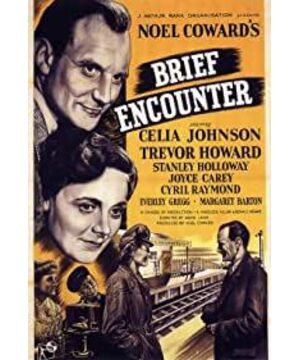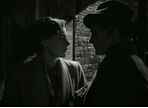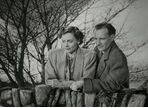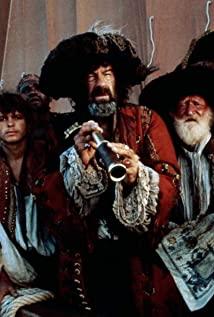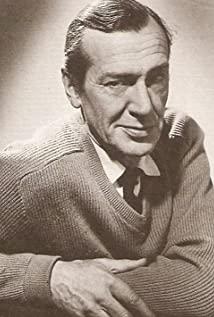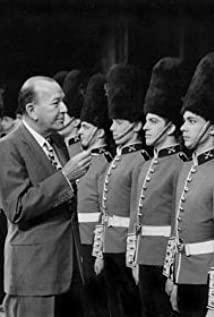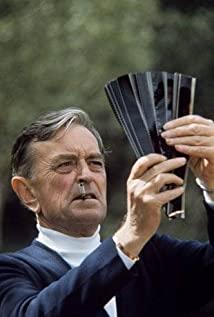I thought that Keats’s poem was the title of "Meet and Hate Late", supplemented by Rachmaninov’s rhythm, classical literature and classical music as the guide, seeming to inadvertently let the 1940s go away. The age casts a sense of familiarity. Speaking of the 1940s, the impression often seems to be a grand epic under the background of World War II, and even the love between you, me, and me cannot escape the fate of "small people in the big era". "Meet and Hate Late" was born in 1945 at the end of World War II. It is set in a town near London, England. The smoke of war is no longer visible in the story, and the life of middle-class families tends to be calm. Before this year, the intervention of war and social turmoil made people often cared about life-and-death social focus events and entangled in the life and death of individuals. It can be said that both individuals and society are in a life-and-death radical change, and the narrative of movies is usually It focuses on intense drama conflicts, often expressing thrilling, life-threatening major propositions, or personal bumpy life paths. The end of the war meant a turning point. In the West, countries headed by the United Kingdom in particular are gradually transitioning to a middle-class society. The interior of the society is stable, and most people have enough food and clothing. Social contradictions such as unemployment are no longer as prominent as during the war, but new social contradictions have appeared again, and the heroine Laura in "Meet and Hate Late" came into being under such a social background.
The heroine Laura not only represents an individual, she seems to be a symbol, a symbol, and the creator has given the soul of the times. First of all, she is a housewife in a middle-class family. What the middle class means, the various details of the movie are like us: she usually has nothing to do, she often takes the train to the neighboring town to go shopping and watch the movie, and sip a glass of brandy elegantly in the bar and eat a bite of cookies. I like to read Keats at home, listen to Rachmaninoff, and be urged by my children to take them to see an opera or acrobatic performance. It can be said that the material life is satisfied, and the spiritual life looks equally prosperous. Secondly, as we all know, the development of material civilization will bring about the alienation of society and the separation between people. Although living in a bustling city, it is inevitable to be lonely. People have to deal with each other every day. However, there are few and few spiritual communication. The crisis of interpersonal relationship constitutes a social obstacle. This is a new contradiction that arises with the development of society. On the one hand, at the beginning of the film, the old lady’s seemingly familiar and cordial greetings and conversations were actually to satisfy her desire for voyeurism and gossip psychology, which caused Laura’s dual physiological and psychological reactions. She was unbearable to talk about the old woman, and later complained to her husband, "When people pretend to look good, is it disgusting?" Not only that, when Laura and Hawe were hit by acquaintances on the street. When eating together, Laura must also deliberately draw a line and put on a warm greeting, but everything will inevitably be reduced to talk in the mouth of the people in the future. Also, when Hawe’s friends realized that Hawe had brought a woman to the apartment, they did not listen to Hawe’s explanation and kicked him out of the room. The crisis of interpersonal relationship is hidden around everyone, without sincere communication, making people upset. On the other hand, under the contradiction of this kind of interpersonal crisis, when the film started, after Harvey carefully wiped the sand in Laura’s tears with a handkerchief, he was destined to be unusual in this kind of relationship, like buried I planted a sincere emotional seed, and only waited for the time to explode. I am afraid that this kind of sincere spiritual communication in life is rare. The subsequent six encounters between the hero and the heroine seem to explain it. In addition to the crisis of interpersonal relationships, we should not ignore the crisis deep in the individual's heart. Human beings are the only creatures that can explore the meaning of life. This kind of exploration will become more prominent when there is no worry about food and clothing, because only under the premise of no worry about food and clothing can people think about similar problems in introspection. The same is true for Laura. The satisfaction of material life does not mean the perfection of life. Until Hawe wipes the sand from her eyes, the originally peaceful life is completely broken, and the dramatic changes in emotions make life have waves that cannot be controlled by reason. The plot line of the movie is set as the emotional evolution of two unfamiliar men and women, which shifts the focus from the external dangers of society
It’s worth intriguing that the world generally acknowledges that the British Isles are less romantic and passionate than the French style and the Iberian fanaticism, and appear slightly rigid. But director David Lean broke the usual impressions of the past with this early 1945 work. The six encounters of the hero and heroine in the film are a classic and run through. Emotions start from unawareness, self-awareness, restless self-comfort, until they lose their senses. During this period, the lines and plots show a state of "in love, but only in courtesy", from intoxicated passion to returning to morality. The process of this shows that the British are different from the Americans in their moral choices. This kind of "director's approach" is roughly manifested in two aspects. On the one hand, there are external constraints: the director first chose the heavy bells and the roar of trains at the beginning of the film, supplemented by the heavy melody of the first eight bars of Rachmaninoff's Second Piano Concerto, which symbolizes this sight. With all-time social restraint. In addition, acquaintances interrupt the normal date of the two from time to time, making them have to re-examine their behavior and so on. On the other hand is self-restraint. The heroine’s monologue runs through it, always reminding herself to return to the normal track and return to the position of “mother” and “wife”. It was "guilt and shame", on the one hand, he comforted himself, "Can you meet him at the station this time?" vowed "I will never meet again when I get home", and the two will meet again next Thursday. The delicate emotions are presented through the lines, which is really wonderful. Especially when Hawe talked about his "preventive medicine" theory of being a doctor, he actually subconsciously expressed his attitude towards this feeling. "A way to prevent diseases is worth 50 cures." The two people have been cautiously defending against the last line of defense, guarding against minor failures, and dealing with this middle-aged extramarital affair in a preventive manner.
In estrus, it ends with ceremonies, but it can only leave a melancholy and unsatisfactory ending. But compared to the Americans’ belief in the horses, the Japanese’s oriental style is dim, and the British finally let reason and truth prevail, leaving a hazy light. I just saw that someone quoted Fitzgerald. Fitzgerald said: "All life is just a progression toward, and then a recession from, one phrase—I love you." Stop and retreat), this process echoes the beginning and the end of the movie. At the beginning, the train passed by, and there was a piece of sand in the eyes of tears. At the end, the train passed by, and the wind blew my hair and disturbed my mood. Looking through the autumn water, I had no choice but to stop moving forward, feeling that it was too late to see each other.
View more about Brief Encounter reviews


